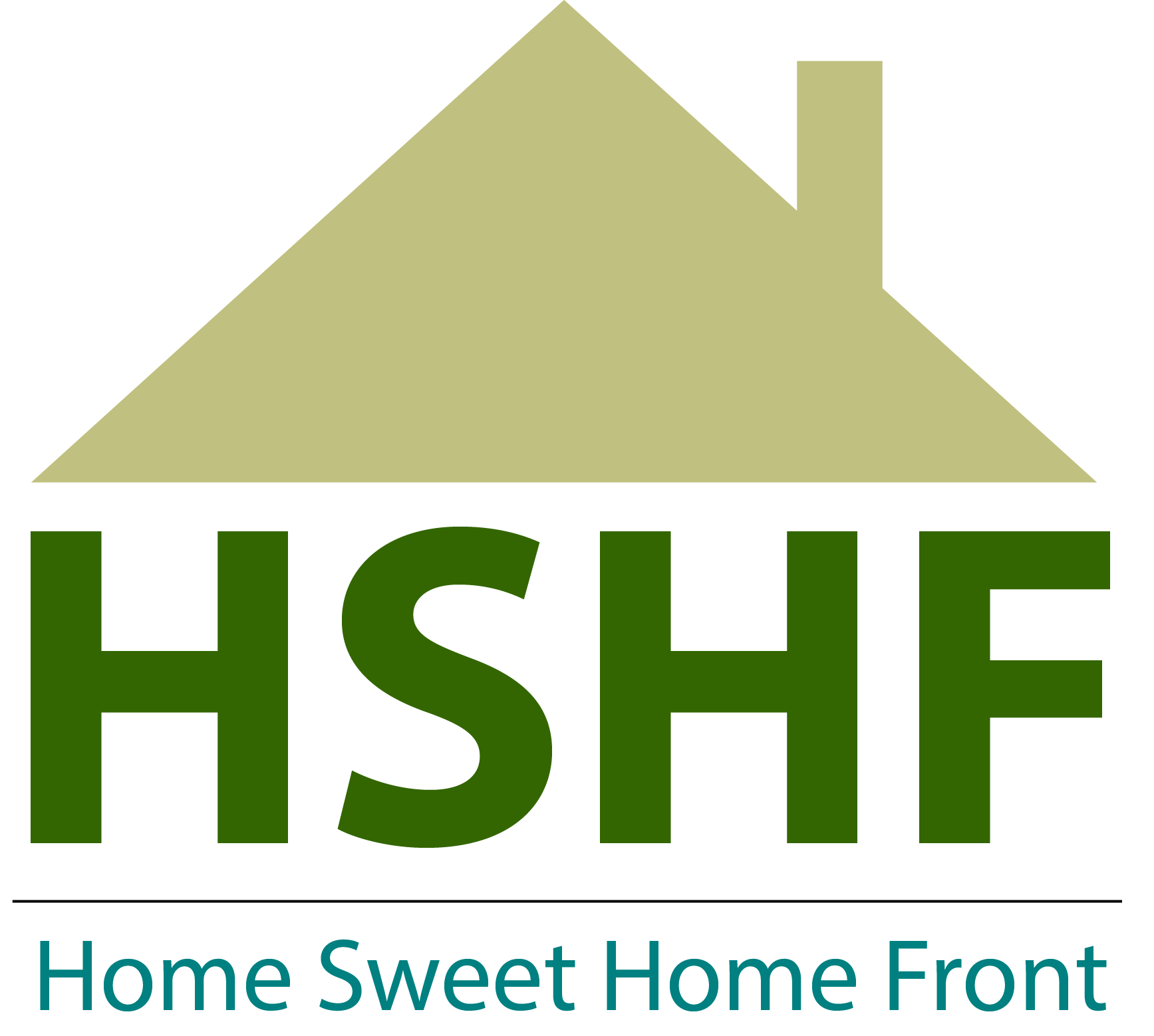
1938
In June 1938, the Women's Voluntary Service For Air Raid Precaution (to give it its original name) was formed. The membership was essentially middle class, mirrored in the bottle green coats and conspicuous hats for which the volunteers had to pay.
Early tasks which fell to the women of the Women's Voluntary Service for ARP was evacuation and the lesser known job of making medical supplies, bandages (made from old sheets), nursing gowns and pyjamas.
1939
In February 1939, with the role of the Women's Voluntary Service for ARP ever expanding, the name was changed to the Women's Voluntary Service for Civil Defence, although to most, they were simply known as the WVS.
Much of the WVS wartime duties focused around the aftermath of air raids. As the following list suggests, there was an awful lot of valuable work that the WVS did, especially considering that these days, their past efforts and importance is barely remembered.
The WVS volunteers were often responsible for the running of authorised salvage drives such as the removal of iron railings from public buildings. Today's recycling schemes although credible, pale into insignificance compared with the WVS paper/rubber drives and collection of aluminium pots and pans, kettles, jelly moulds and even artificial limbs!
Old bones were also gathered and processed for use as glue and garden fertilisers.
Clothing was also collected and placed in special WVS clothing stores. These would then be accessed when people who had been 'bombed out' of their homes following air raids, required clothing. Mothers too could also exchange clothes which became too small for their children.
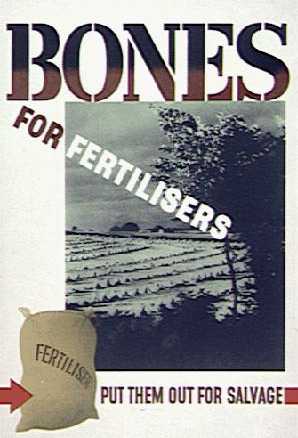
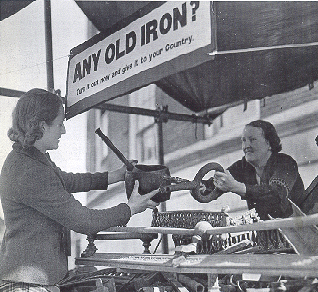
PICTURE: A WVS collection point for much needed iron
Once collected, these rosehips were turned into a vitamin enriched syrup which the WVS volunteers would then hand out to mothers and babies.
The WVS also participated in something called the Housewives service where each volunteer was allocated an area of the city in which they resided, to assist with immediate aid (NOT first aid) should incidents of emergency arise following air raid bombings.
After air raids the WVS volunteers would be responsible for the running of information centres, assisting those civilians affected most by the bombings. This included the tracing of missing or wounded people.
The WVS volunteers provided hot drinks and snacks to both the Civil Defence workers and those people 'bombed out' and injured as a direct result of air raids.
Volunteers would visit and give comfort to elderly people who often felt the strain of home front war conditions so much more than the young.
The WVS volunteers ran this scheme to assist those civilians who had lost all of their belongings during air raid attacks.
The women of the WVS organised temporary accommodation for those people whose homes were destroyed during air raids.
The WVS organised talks on such issues as 'Make do and Mend'. This helped to convey the importance of repairing old clothing and NEVER falling victim to the mocking Squander Bug.
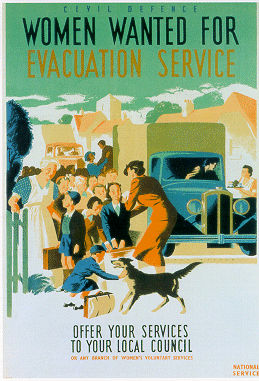
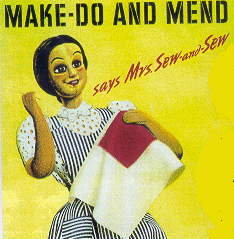
The WVS volunteers were involved in the billeting of children to their new homes, far away from the dangers of city bombings.
Many WVS members were also appointed 'Food Leaders'. As a food leader, talks were given on recipes and nutrition using rationed foods and cooking methods in post air raid conditions, where gas, electricity and other services were so often interrupted.
The WVS also helped to support the:
With shops bare of all but expensive second hand toys, the WVS organised Christmas toy exchanges.
The WVS produced and distributed information leaflets. One such leaflet was the "Information on bed-wetting for householders taking in unaccompanied children" which was issued in December 1939 specifically to those families taking in evacuees.